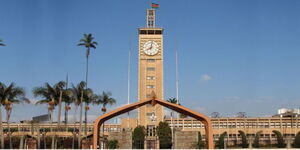The Energy and Petroleum Regulatory Authority (EPRA) has announced a marginal decrease in fuel prices in the latest review.
The latest review released on Sunday, September 14 saw pump prices for Super Petrol, Diesel, and Kerosene have each decrease by Ksh0.79, Ksh0.11 and Ksh0.80 per litre respectively.
In Nairobi, Super Petrol, Diesel and Kerosene will retail at Ksh184.52, Ksh171.47 and Ksh154.78, respectively, effective midnight on Monday, September 15.
"In accordance with Section 101(y) of the Petroleum Act 2019 and Legal Notice No.192 of 2022, we have calculated the maximum retail prices of petroleum products which will be in force from 15th September 2025 to 14th October 2025," a statement from EPRA read.
This was the second month in a row which saw pump prices experience a slight drop, after Super Petrol initially dropped by Ksh1 during the August-September review.
In Mombasa, super petrol will retail at Ksh181.24 per litre, while diesel will retail at Ksh168.19.
Similarly, Thika motorists will also experience reduced fuel prices, albeit very marginally, with petrol prices set to remain at Ksh184.16 for the next four weeks. Diesel, meanwhile, will retail at Ksh171.47.
As per the provisions of the Finance Act 2023 and the Tax Laws (Amendment) Act of 2024, and the new pump prices are inclusive of a 16 per cent Value-Added Tax.
The average landed cost of imported Super Petrol decreased slightly by 0.46 per cent, dropping from Ksh 96,728 per cubic metre in July 2025 (USD623.71) to Ksh 96,262 (USD620.84) in August 2025.
During the same period, the cost of imported Diesel fell by 3.38 per cent, from Ksh98,558 to Ksh95,275 per cubic metre.
Kerosene also recorded a slight price decline, as landing cost decreased by 2.93 per cent from Ksh97,303 in July to Ksh94,438 per cubic metre in August 2025.
Interestingly, the latest review came after the Central Bank of Kenya's weekly bulletin published on September 12 suggested that global oil prices had edged higher.
According to the bulletin, there was a 2.5 per cent increase in the price per barrel of Murban crude, which was mainly driven by potential supply disruptions stemming from geopolitical tensions in the Middle East.
“International oil prices rose, reflecting potential supply disruptions from the conflict in the Middle East and the war in Ukraine, even as concerns over weakening US demand and an expected oversupply from planned output increases by OPEC+ countries remain,” CBK’s bulletin read.
Kenya heavily relies on imported petroleum products, and EPRA typically adjusts pump prices based on, among other factors, exchange rates and global crude trends.












